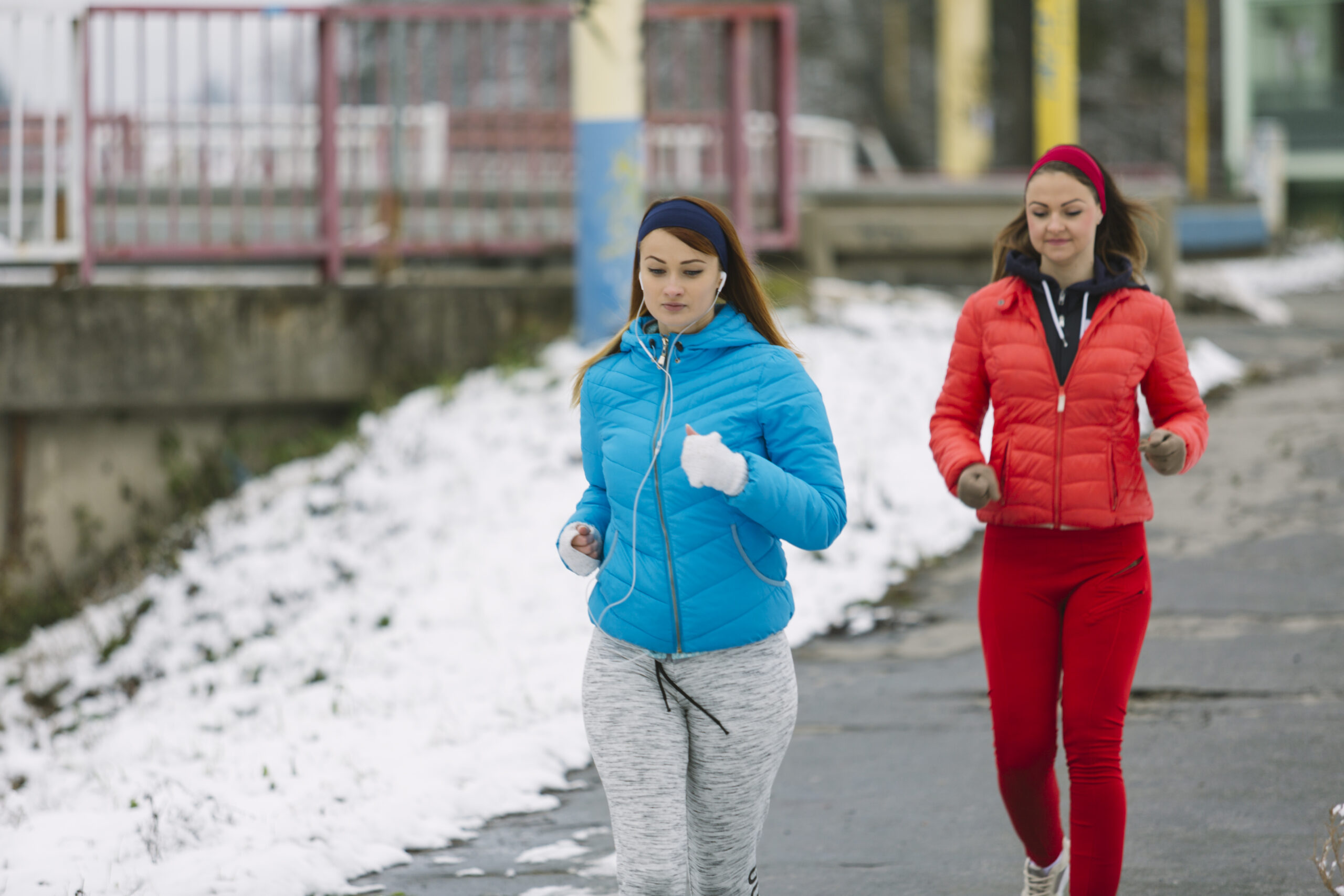Whether you’re new to running or have been logging miles for years, we can all agree that the right weather can make or break a run.
But what makes the “perfect” running weather?
Well, that depends a lot on the runner. Some of us love a cool, crisp breeze, while others prefer the warmth.
Overall, according to science and my own experience, the ideal temperature range for runner seems to be around 44° F and 59° F (or 7-15° C).
So, let’s break down what science has to say about this and how weather conditions can impact your performance.
The Impact of Heat on Running Performance
Before I dissect the optimal temperature for running, let’s first discuss the impact of heat and cold on running performance.
Run often enough, and you’ll know it takes more energy to maintain a normal pace when the temperature rises.
And yes, that’s a universal experience.
Research has reported that weather factors such as temperature, wind, precipitation, and cloud cover all impact running performance, but none is more impactful than the air temperature.
If you often run during the hottest time of the day (and year), you’re certainly limiting your running potential.
I learned this lesson the hard way one summer.
I decided to go for a long run at noon, thinking I could handle the heat. It was 90°F (32°C), and I was drenched in sweat by the first mile.
By mile three, I was dizzy, exhausted, and barely moving.
Feeling completely drained, I cut my run short and walked home.
That day taught me to respect the heat. When temperatures soar, I run early in the morning or wait until the evening when it’s cooler.
So, why does heat make running so tough? As the temperature rises, your body works overtime to cool itself down.
Blood that normally delivers oxygen to your muscles is redirected to your skin to cool you off, leaving your muscles underpowered.
This leads to quicker fatigue, a higher heart rate, and a feeling that every step is harder than it should be. The build-up of heat in your body also increases the risk of heat illnesses like heat exhaustion and heat stroke—a recipe for disaster.
Running in the Cold
On the flip side, there’s something special about running in cold weather. When you run in cold or mild weather, your body can give off more heat to prevent you from getting too hot.
Instead of working hard to stay cool, your body can focus on performance to run faster without overheating.
Plus, you burn a few extra calories trying to stay warm! But don’t be fooled—running in extreme cold has its challenges.
Your muscles can stiffen quickly; if you don’t warm up properly, you might feel fatigued sooner than expected.
What’s the Best Temperature for Running?
The perfect temperature for running has been dissected thoroughly across many races.
Different studies’ conclusions and results tell us that the ideal temperature for outdoor running varies between sprinters and marathon runners.
Most of the science reported that the ideal temperature for endurance running is cooler than what it feels when you’re not running. And for every degree warmer, performance is drastically impacted.
As far as I can tell, most research examining the impact of temperature exercise performance over the past few years has mainly occurred in a lab setting.
Luckily, a few studies have assessed the effect of temperature on “real” runners.
One example is this research that reported that the ideal temperature range for most runners seems to be around 44° F and 59° F (or 7-15° C).
Another research out of the Public Library Of Science examined the results of six marathon runners. Four factors were considered, and that included: temperature, humidity, dew point, and atmospheric pressure at sea level.
Ultimately, the researchers concluded that air temperature had the biggest impact on speed and withdrawal rates. They specifically reported that recreational marathon runners—or those crossing the finish line between 3.30 and 5.00 hours—found optimal conditions at roughly 44 F or 7 C.
Another study exclusively assesses Boston Marathon finishers and their finishing times in concert with the weather that day.
A decade-long study of the Boston Marathon reported that the best temperature range for all runners –regardless of their fitness level—is around 46 to 59 F or 7.7 to 15 C.
What About Sprinters?
If long-distance running isn’t your goal, you don’t inherently want to be that cold.
Sprinters need warm muscles to generate maximum power.
Let me explain.
Sprint performance is at its peak during drastically warmer conditions since the muscles need to be warm enough to exert power at a peak but not so warm as to generate excessive heat.
And please don’t take my word for it. Research shows that male 100-meter sprinters perform best at around 72°F (22°C), while female sprinters hit their peak at around 73°F (23°C). The warmth helps keep muscles loose and primed for explosive movement without the risk of overheating like long-distance runners.

The Bottom Line
While 44°F to 59°F might be the “golden zone” for most runners, waiting for perfect conditions can hold you back.
Running in a variety of weather conditions not only makes you stronger physically but also mentally. Every run—whether in scorching heat, mild temps, or biting cold—offers valuable lessons.
So, lace up your shoes and get out there, regardless of the forecast. I’ve learned through years of running that it’s not about waiting for the perfect weather but becoming a runner who can handle anything.


I always knew running in the heat slowed me down, but I didn’t know the ideal temperature was around 50°F-60°F
Running in cooler temperatures has always worked better for me. Anything above 70°F, and I start feeling sluggish.
I completely agree with this! Running in the heat is brutal, and I’ve always performed better in cooler temperatures. 50°F-60°F feels perfect for both comfort and speed.”
This article made me rethink my running routine! I’ve been running in the heat and feeling wiped out every time. Looks like I’ll be sticking to cooler morning runs from now on
Personally, I prefer running in cooler temps around 50-60°F. Anything above that, and I feel like I’m dragging.